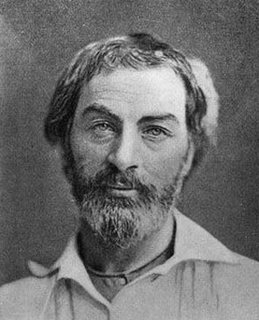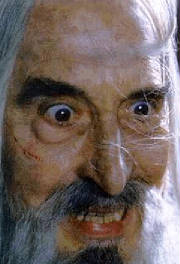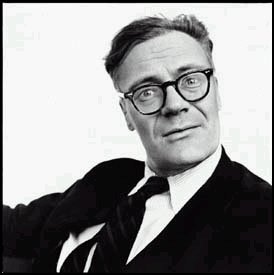 Kim calls me a “ruiner” because I’m so critical of everything. And because I’m often quite crotchety. And because I’m prone to believing critical movie and book reviews, even if the reviews are clearly written by blithering idiots. And because I’m prone to telling her what she feels are crucial details about the endings to things before she’s seen them. Hm... now that I think about it I suppose there might be a teeny tiny speck of justification for the title of ruiner. I certainly believe in preemptively detesting everything and everyone until I see clear and incontrovertible evidence of nonsuckiness.
Kim calls me a “ruiner” because I’m so critical of everything. And because I’m often quite crotchety. And because I’m prone to believing critical movie and book reviews, even if the reviews are clearly written by blithering idiots. And because I’m prone to telling her what she feels are crucial details about the endings to things before she’s seen them. Hm... now that I think about it I suppose there might be a teeny tiny speck of justification for the title of ruiner. I certainly believe in preemptively detesting everything and everyone until I see clear and incontrovertible evidence of nonsuckiness.Well, the spoiler has been bespoiled. I’ve been hoist on my own petard. A petard is a type of bomb named after “a loud discharge of intestinal gas,” by the way. Just because something’s in Hamlet doesn’t mean it’s not naughty.
Anyway, I’ve gone and done ruined something for myself, and that something is several of my very favorite poems, including the well-known “The Lake Isle of Innisfree” by Yeats and “Skunk Hour” by Robert Lowell. I do not claim to have particularly refined or obscure taste in poetry; both of these are over-anthologized poems which most students are made to study at some point. I know I saw both of them ad nauseam in both high school and college, and strangely they never got old and I liked both very much indeed. Then came The Spoilening.
I recently acquired a copy of what Amazon calls In Their Own Voices: A Century of Recorded Poet [BOX SET] (I guess they’ve still got some kinks to work out of their titling system). It’s just what it sounds like, a set of recordings of poets reading their own work. The first one is Walt Whitman, apparently recorded on the very first record player Thomas Edison ever built – you know, the one made out of granite and powered by human blood. It’s an interesting and valuable piece of history, and a priceless record of one of America’s greatest poets.
 Now future generations will know that Walt Whitman sounded like a big women’s blouse. (If you have Windows Media Player or RealPlayer, check out the samples on the Amazon page and
Now future generations will know that Walt Whitman sounded like a big women’s blouse. (If you have Windows Media Player or RealPlayer, check out the samples on the Amazon page and This, sadly, was not the most disillusioning of my discoveries. For whatever reason Whitman sounded kind of wimpy, but Yeats, doing “The Lake Isle of Innisfree”, has an entirely different problem.
In case you’re not familiar with it, “The Lake Isle of Innisfree” is the most peaceful and meditative poem about harmony with the natural world ever written by a non-Japanese person. It’s about having a calm quiet place to think about, about calmly hearing the sound of water lapping on the shores, even when you’re in the grey city. It’s lovely and very, very peaceful and soothing.
 The problem is that when Yeats, the author of this pleasant, soothing poem, reads it himself he bellows it out as if it’s Judgment Day. He has a booming “Grrreat Poetick RRRRECITATION!” voice that sounds as if he’s Moses reading the Commandments off the stone tablets. He sounds like Saruman on his little oration balcony at Isengard getting the Uruk-Hai really whipped up before they go and pillage something. Which would be great for many of Yeats’ poems, “The Second Coming”, for example, but which is just really, really crappy for “Innisfree”.
The problem is that when Yeats, the author of this pleasant, soothing poem, reads it himself he bellows it out as if it’s Judgment Day. He has a booming “Grrreat Poetick RRRRECITATION!” voice that sounds as if he’s Moses reading the Commandments off the stone tablets. He sounds like Saruman on his little oration balcony at Isengard getting the Uruk-Hai really whipped up before they go and pillage something. Which would be great for many of Yeats’ poems, “The Second Coming”, for example, but which is just really, really crappy for “Innisfree”. It’s such a soothing poem when I read it on the page. “And I shall have some peace there, for peace comes dropping slow…” But when Yeats reads it, it’s like he’s just getting to the last line of a campfire story about hobgoblins and banshees: “FeRRRR PEACE… comes DRRRRRROPPING slO-O-O-O-O!” I understand that he came from an earlier time, when poets probably all had a sort of powerful Master Thespian declaiming voice they used, but now when I think of the poem, or even just see the words on a page, I think of that old man’s furious growling voice. It’s exactly like sitting down for a session of Zen meditation and hearing Gandalf hollering “YOU. SHALL. NOT. PASS!” every time you close your eyes. It’s just ruined it.
 I won’t even go into what I think of Robert Lowell’s nutball voice. Let’s just say I liked “Skunk Hour” a lot more when I didn’t have the unforgettable mental image of it being read aloud by an effeminate Mayor Quimby.
I won’t even go into what I think of Robert Lowell’s nutball voice. Let’s just say I liked “Skunk Hour” a lot more when I didn’t have the unforgettable mental image of it being read aloud by an effeminate Mayor Quimby. Wallace Stevens on the other hand didn’t ruin his poem at all. I pretty much would have figured he had a silly voice – I mean, when you name a poem “The Emperor of Ice-Cream” and include the lines “bid him whip/
In kitchen cups concupiscent curds,” you’re setting a certain circus-tent vibe from the get-go. So he’s fine in my book.
And then there’s Ezra Pound. That enormous poseur. Tell me if you hear this, but I could swear that he’s exactly copying Yeats’ “Grrreat Poetick RRRRECITATION!” voice and rhythm. Maybe young Idahoans back then sounded exactly like elderly Irishmen, I don’t know, but it definitely seems suspicious.
Ruined. All ruined. Damn you, today’s modern multimedia world of the future! Damn you to Hell, sir! Now I’m wondering what else I like in written form that would suck if I heard it aloud by the author. Maybe Dante sounded like Bobcat Goldthwaite. Maybe Abraham Lincoln sounded like Rosie O’Donnell. ARGH.
Now, I know I have been harsh on these poets’ voices, but I’m not saying that I would sound any better if I read poetry aloud. Au contraire, mon frère. On the few occasions when I’ve heard my own voice on the answering machine, I’ve been filled with an urge to punch myself in the head so that no one would ever have to hear that awful voice again. I’m just saying that I’ve discovered that some poetry is MUCH, MUCH better when left on the page. Again, I urge you to listen to the samples yourself and let me know if you agree.
In any case, I will never hear those poems the same way again. And thus, faire Reader, was the Naturall Order turn’d upon its Arse, and the Ruiner him Self Ruin’d.

3 comments:
I did the same thing with Bukowski a while back and swore I would never "listen" to my favorite poets again.
Sorry you had to experience this.
Sounds bad. I shall stick to the written word myself.
A dear author I love (and who shall remain nameless) spoke at my high school graduation and bored everyone to tears ... there's a reason these people are writers.
Post a Comment